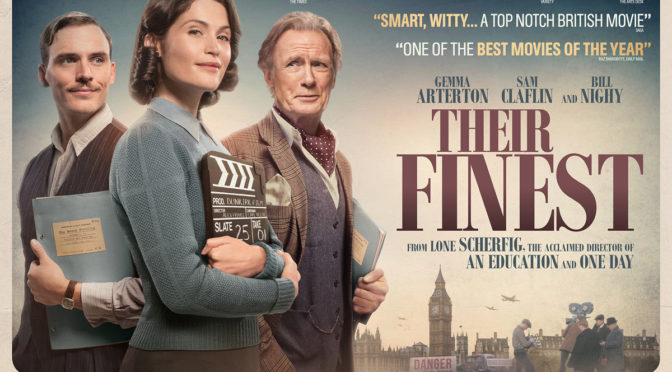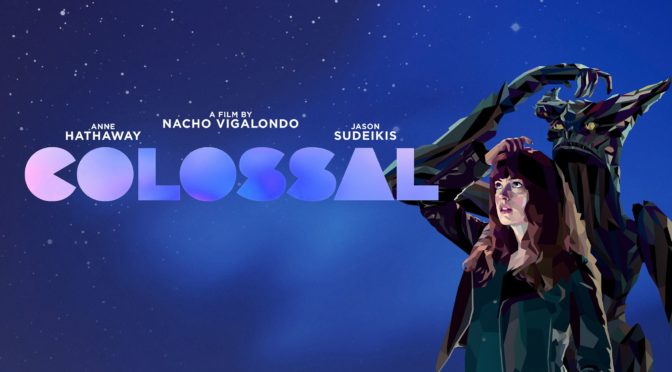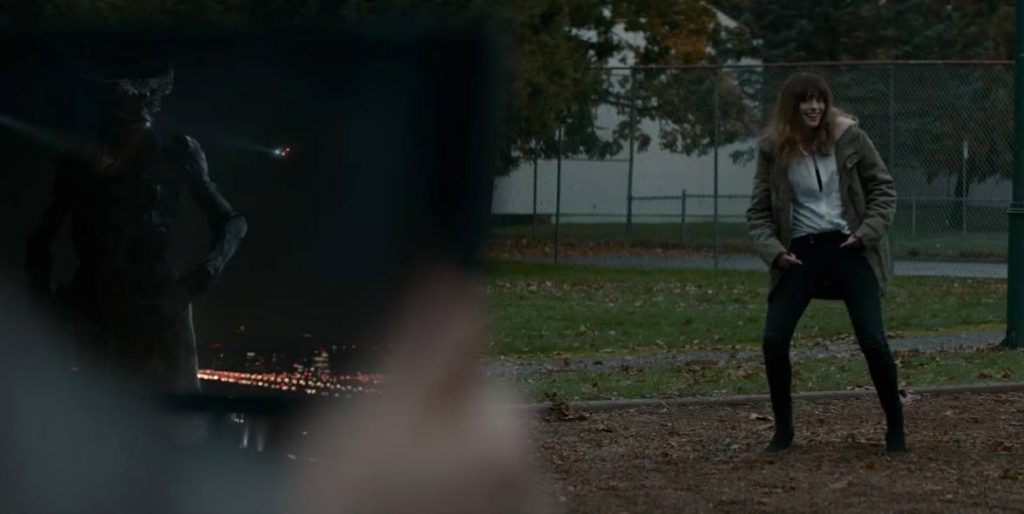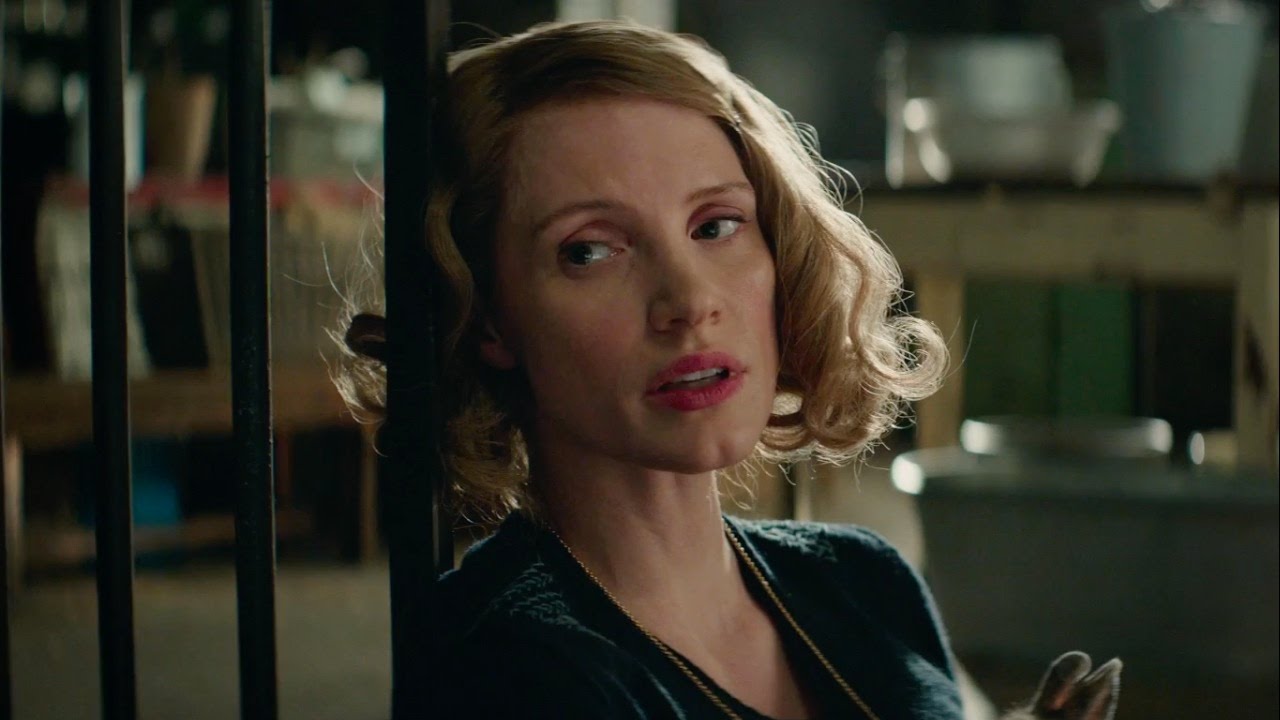WWII movies have been done to death, but Lone Scherfig (An Education) brings a new angle on the conflict. Mrs. Cole (Gemma Arterton; Prince of Persia: The Sands of Time) joins the British Ministry of Information’s film team working on propaganda films. Her job is to write the “slop”, meaning the women’s dialogue, and inspire them to send their sons and husbands to war. In her way are production conflicts, entitled actors, and a clearly sexist mentality in her predominantly male organization.
The film’s visuals are what we’ve come to expect for period pieces. Colors are muted with only subtle blues and reds to stand out from the dominant grays. The sets incorporate a lot of green screen in order provide era-appropriate backdrops, but these skylines are glaringly synthetic. The contrast in the gray is more reminiscent of Sin City’s hyper-stylized visuals than sepia-toned photographs the filmmakers were likely targeting. While not unpleasant by any means, the heavy digital coloring and choice of sets instead of physical locations make the film more like an artificial, computer-generated landscape than an authentic 1940s London.
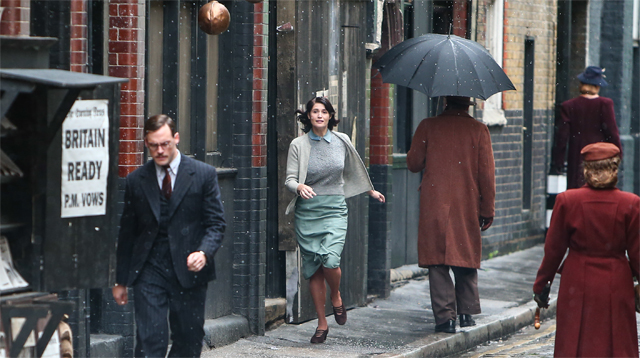
Feminist themes provide the backbone of the film. Mrs. Cole has to deal with constant derision and her intelligent opinions are often overruled or simply disregarded because of her gender. The film makes it obvious how little her contribution is initially valued as she accepts no writing credit and a lower pay than her male peers. As cliché and predictable as it might be, her growing confidence and reputation with the cast and crew are incredibly rewarding. She pitches movies, rewrites endings, and becomes the go-to writer as she consistently proves her ability to create emotions in her screenplay. Her progression from meekly consenting to others to firmly standing by her opinions is a simple, but enjoyable change.
Along with its message, the film brings plenty of humor. Bill Nighy (Love Actually) plays an aging self-absorbed actor whose fame may have subsided in reality but is still very much alive in his own mind. His melodramatic flourishes during his acting scenes or exaggerated advice to a new actor are hilarious. He is the veteran with too much pride and too little patience to bother with pleasantries as he calls out others and demands rewrites so he can have more screen time. His sassy attitude prevents the film from becoming too rigid.
The producers from the Ministry say they are looking to make films that have “Authenticity informed by optimism” to motivate their people for the war efforts. The makers of this film have plenty of the latter but lack the former. There are major, unneeded plot turns that add forced drama. They feel cheap and go against the grain of the otherwise natural character arcs. These may be holdovers from the novel the film is based on, but they feel constructed for the sole purpose of making the audience cry by any means necessary and are so blatant that they are almost insulting. Arterton’s performance as the ever-committed Mrs. Cole and the unexpected humor are enjoyable, but they can’t overcome a contrived third act.

3/5 stars.
